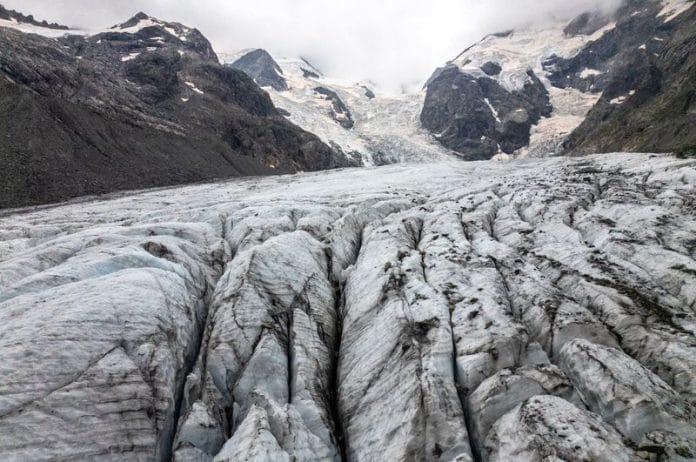By Denis Balibouse and Cecile Mantovani
ZURICH (Reuters) – Swiss glaciers melted at an above-average rate in 2024 as a blistering hot summer thawed through abundant snowfall, monitoring body GLAMOS said on Tuesday.
Earlier this year, glaciologists had celebrated heavy winter and spring snow dumps in the Alps, hoping this would signal a halt to years of hefty declines or even a reversal of losses.
But with average August temperatures a few degrees above freezing even at the 3,571 meter high Jungfraujoch station perched above the Aletsch Glacier, scientists measured record ice losses across the country that month.
Overall, GLAMOS said Swiss glaciers lost 2.5% of their volume this year which was above the average of the past decade.
“It is worrying to me that despite the perfect year we actually had for glaciers, with the snow-rich winter and the rather cool and rainy spring, it was still not enough,” said Matthias Huss, Director of GLAMOS.
“If the trend continues that we have seen in this year, this will be a disaster for Swiss glaciers,” he added.
One of the factors that accelerated the losses this year was dust from the Sahara, the report said. This gives ice sheets a brown or rosy hue which inhibits their ability to reflect sunlight back into the atmosphere.
Pictures posted by Huss on social media during data collection trips in recent weeks showed muddy streams snaking through ice sheets so thin that rocks and gravel protruded.
“There is really a relation you build up with the site, with the ice, and it hurts a bit to see how the rocks are simply taking over,” he told Reuters earlier this month, while measuring ice on the Pers Glacier in eastern Switzerland.
More than half of the glaciers in the Alps are in Switzerland where temperatures are rising by around twice the global average due to climate change.
Last week, the Swiss government gave approval to revise segments of its border with Italy since the melting of the icy ridges between the two countries has reshaped the watersheds which fix the boundary.
If greenhouse gas emissions continue to rise, the Alps’ glaciers are expected to lose more than 80% of their current mass by 2100.
Earlier this year, Europe’s top human rights court ruled that Switzerland was not doing enough to arrest the impact of climate change. The Swiss government denies this.
(Reporting by Denis Balibouse, Cecile Mantovani; additional reporting and writing by Emma Farge; Editing by Hugh Lawson)
Disclaimer: This report is auto generated from the Reuters news service. ThePrint holds no responsibilty for its content.






